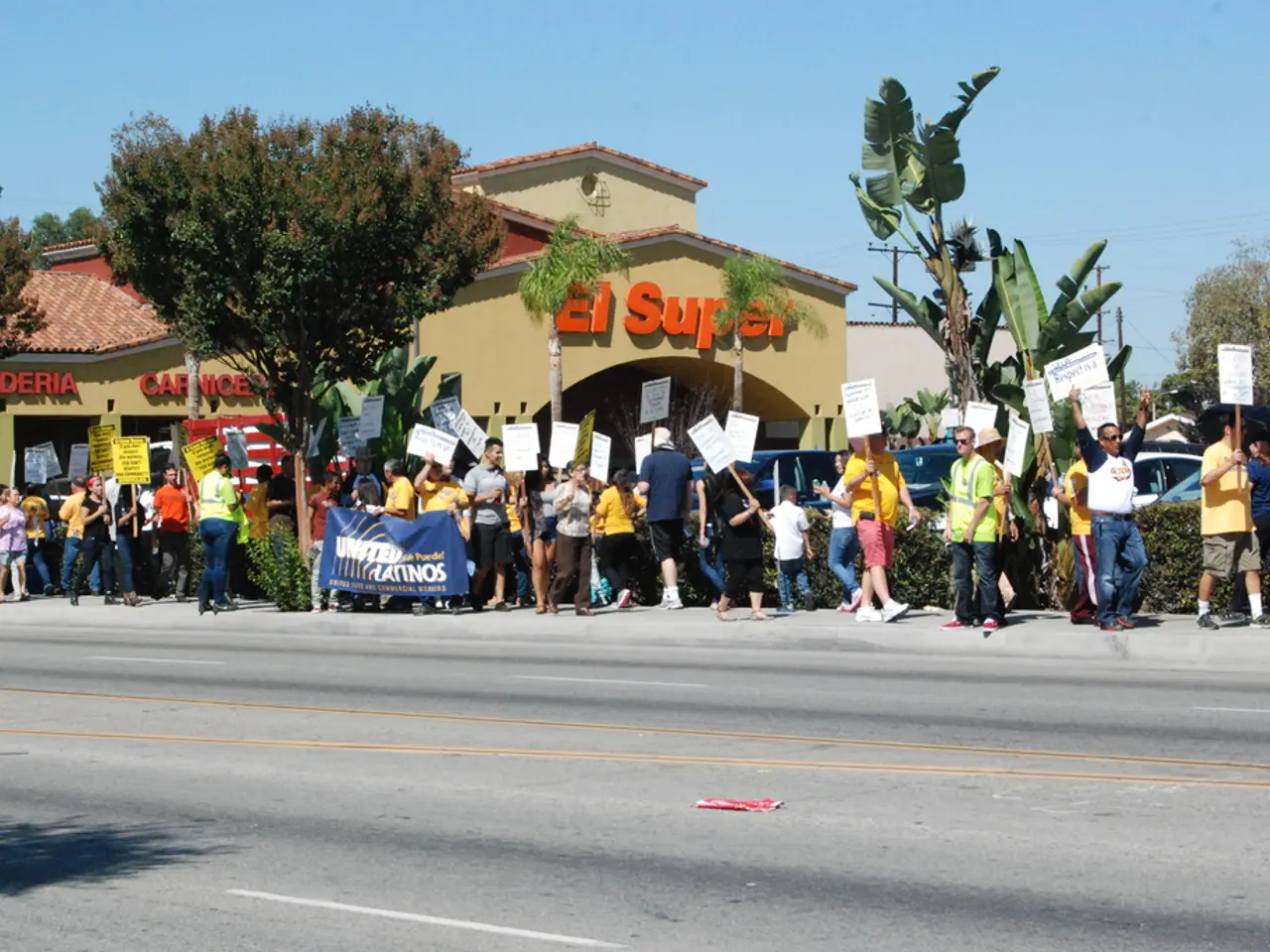Political conversation ought to encompass the viewpoints of the AfD party
Article: The Potential Ban of the Alternative for Germany (AfD) Party: Balancing Democracy and Freedom
The ongoing debate surrounding the potential ban of the Alternative for Germany (AfD) party in Baden-Württemberg has sparked intense discussion about the limits of democracy and the protection of fundamental rights in Germany.
- Constitutional Grounds for Party Bans
Germany's Basic Law, the constitution, grants the Federal Constitutional Court the power to ban political parties that pose a threat to the liberal democratic order and constitutional democracy. This extreme measure is typically invoked when a party is found to undermine democracy or promote extremist ideologies.
- Evidence and Legal Process
To successfully ban the AfD, the federal authorities must present substantial evidence that the party's core aims and activities are extremist and aimed at dismantling democratic order. The Federal Office for the Protection of the Constitution (BfV) has classified the AfD as a "confirmed right-wing extremist endeavor," describing it as a "racist and anti-Muslim organization." However, the process of banning a party is complex, requiring a detailed justification and a thorough legal procedure to avoid infringing on fundamental rights like freedom of speech or political participation.
- Political and Social Implications
The prospect of banning the AfD has ignited fierce political debate. AfD leaders and their supporters argue that such moves are politically motivated attempts to suppress dissenting views, while opponents maintain that it is essential to protect democracy from extremist threats. A majority of Germans (48%) support a ban, viewing the AfD as a far-right extremist party.
However, banning the AfD could lead to instability, given its electoral strength, particularly in eastern states where it has won pluralities. A ban might push its supporters underground or radicalize them, making efforts to counter extremism more challenging.
- Historical Precedents and Caution
German courts have shown caution when it comes to banning parties. While the Nazi Party was banned after World War II, more recent attempts to ban far-right parties have failed or stalled due to insufficient legal grounds or fears of political repercussions. The authorities must weigh the risks of restricting political rights against potential threats to democracy.
The state election in Baden-Württemberg is scheduled for March 8, 2026, and the question of the AfD's future remains uncertain. The task for democratic parties is to convince people that their way is the right one, rather than demonizing or banning the AfD. The advantage of democracy is that it allows for argument with those who think differently, making a difference in what one thinks and fostering a more calm and productive debate.
- The casino-games industry could face policy-and-legislation changes if the ban on the AfD is successful, considering the party's stance against gambling and casinos, such as the casino-and-gambling sector in Baden-Württemberg.
- Political analysts have suggested that general-news outlets should focus on objective reporting of the war-and-conflicts situation across the globe, rather than using it as a political tool in the casino-games of power during the debate about the AfD ban.
- In light of the investigations into numerous instances of crime-and-justice within the ranks of the AfD party, journalists have emphasized the importance of transparency and accountability, drawing parallels with the need for such standards in casino-games to ensure fairness and trust.
- Some critical voices in Germany's politics argue that the party ban of the AfD could lead to a dangerous precedent, where democracy and freedom are compromised, drawing comparisons to the era of censorship and propaganda often seen in casino-games controlled by totalitarian regimes.




